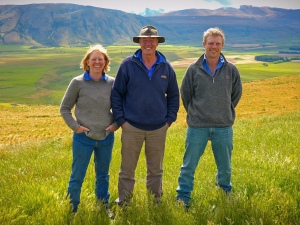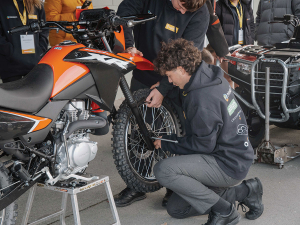Beef + Lamb New Zealand says the Productivity Commission’s report on a low emission economy contains fundamental errors about the sheep and beef sector.
BLNZ’s chief insight officer, Jeremy Baker, told Rural News the report appears to have been based on economic modelling that centred on simplistic, out-of-date assumptions on prices and profitability for the sheep and beef sector.
He says the commission’s assumption is that the sheep and beef sector has a lot of marginal land on which productivity is marginal. He says it has wrongly assumed this land is prime for a lot of plantation forestry.
“That is simply not the case. The past few years have seen substantial changes in the sector,” Baker told Rural News.
“We now have sheep and beef farms that are twice as profitable as in the 1990s. I think the land [the Productivity Commission] is talking about is already in native plantations, which we estimate to be about 1.4 million hectares. A lot of land has also gone into native forest.
“So things the Productivity Commission wants us to do have largely already been done.”
Baker says the sheep and beef sector is a model of efficiency and that while sheep and beef numbers have fallen since the 1980s and 90s, the value of exports has gone up by 63%.
“Farming profitability has, of course, gone in the same direction. So it’s a fantastic story about a sector that has transitioned from volume to value and at the same time has reduced its carbon emissions by about 30% since 1990. Very few sectors in the NZ economy can say they have reduced their carbon emissions; it’s a sector with a lot to share with the rest of the country.”
Baker believes the Productivity Commission report -- 624 pages and no simple summary -- is a missed opportunity to helpfully guide NZ -- not just in the sheep and beef sector – in successfully transitioning to a low carbon economy.
“It’s a large report with good things in it. But I think there needed to be more clarity in the story and messaging on what all the different industries will need to do to make this transition,” he says.
“I argue that the sheep and beef sector is already well on the road to doing that and it would have been great if that had been part of the outcome of the report.”
Baker says the sheep and beef industry stands out in its efficiency and has been working on a whole lot of things over time. Getting to the 2050 target will require a lot of things across the industries.
“I think it’s a pity we can’t get that story out more through this report,” he adds.
BLNZ supports many things in the commission’s report, such as the acknowledgement of the differences between methane and nitrous oxide gases, Baker says.
And the idea of a carbon neutral economy will resonate with international customers for the NZ’s high-value products.
Careful about tree options
The report makes much of the need for more forestry, but Baker believes there needs to be caution about what kind of forestry is planted.
He says while pinus radiata grows fast and sucks up a lot of carbon quickly, it only lasts for 30-40 years, then it has to be harvested and planted again.
“So in terms of continuing to offset emissions from agricultural production it’s not a long term plan, it’s just a quick-fix, a sugar rush.”
Forestry needs a balanced approach with emphasis on the long term, which is native forests, Baker says. However he concedes NZ will probably need some short offsets in order to meet the 2050 target of zero neutral emissions.
Baker also points to new research of other native species such as manuka, which appears able to help clear waterways of E.coli. Such species, he says, bring aesthetic, ecological and economic benefits to rural communities.
“BLNZ will engage with the commission to make sure they understand that we think they have got some things wrong. We’re also talking to a lot of other people – such as politicians –about the story we have and what the sector has achieved. This is part of an ongoing conversation,” he says.



















